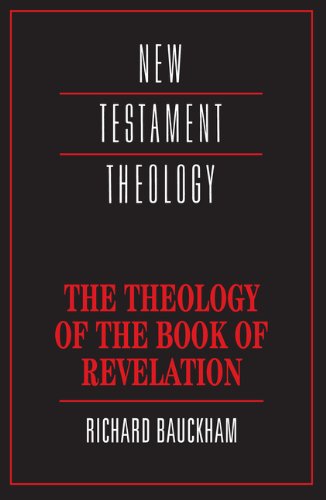
The Theology of the Book of Revelation (New Testament Theology)

The role of Christ in Revelation is to establish God’s kingdom on earth:
Richard Bauckham • The Theology of the Book of Revelation (New Testament Theology)
Moreover, Christ’s presence (walking among the lampstands: 1:13; 2:1) with his people who continue his witness and sacrifice is also God’s presence.
Richard Bauckham • The Theology of the Book of Revelation (New Testament Theology)
God is related to the world not only as the transcendent holy One, but also as the slaughtered Lamb.
Richard Bauckham • The Theology of the Book of Revelation (New Testament Theology)
Christ’s suffering witness and sacrificial death are, in fact, as we shall see, the key event in God’s conquest of evil and establishment of his kingdom on earth.
Richard Bauckham • The Theology of the Book of Revelation (New Testament Theology)
he is present as the Lamb who conquers by suffering.
Richard Bauckham • The Theology of the Book of Revelation (New Testament Theology)
Even the judgments, which issue from his holy presence in heaven and aim to bring about his rule on earth by destroying evil, derive from him only indirectly, through angelic intermediaries.
Richard Bauckham • The Theology of the Book of Revelation (New Testament Theology)
When the slaughtered Lamb is seen ‘in the midst of the divine throne in heaven (5:6; cf. 7:17), the meaning is that Christ’s sacrificial death belongs to the way God rules the world. The symbol of the Lamb is no less a divine symbol than the symbol of ‘the One who sits on the throne’.
Richard Bauckham • The Theology of the Book of Revelation (New Testament Theology)
While evil rules on earth, God as ‘the One who sits on the throne’ must be depicted only in heaven.
Richard Bauckham • The Theology of the Book of Revelation (New Testament Theology)
Seven times in Revelation, Christ himself declares ‘I am coming’ (erchomai: